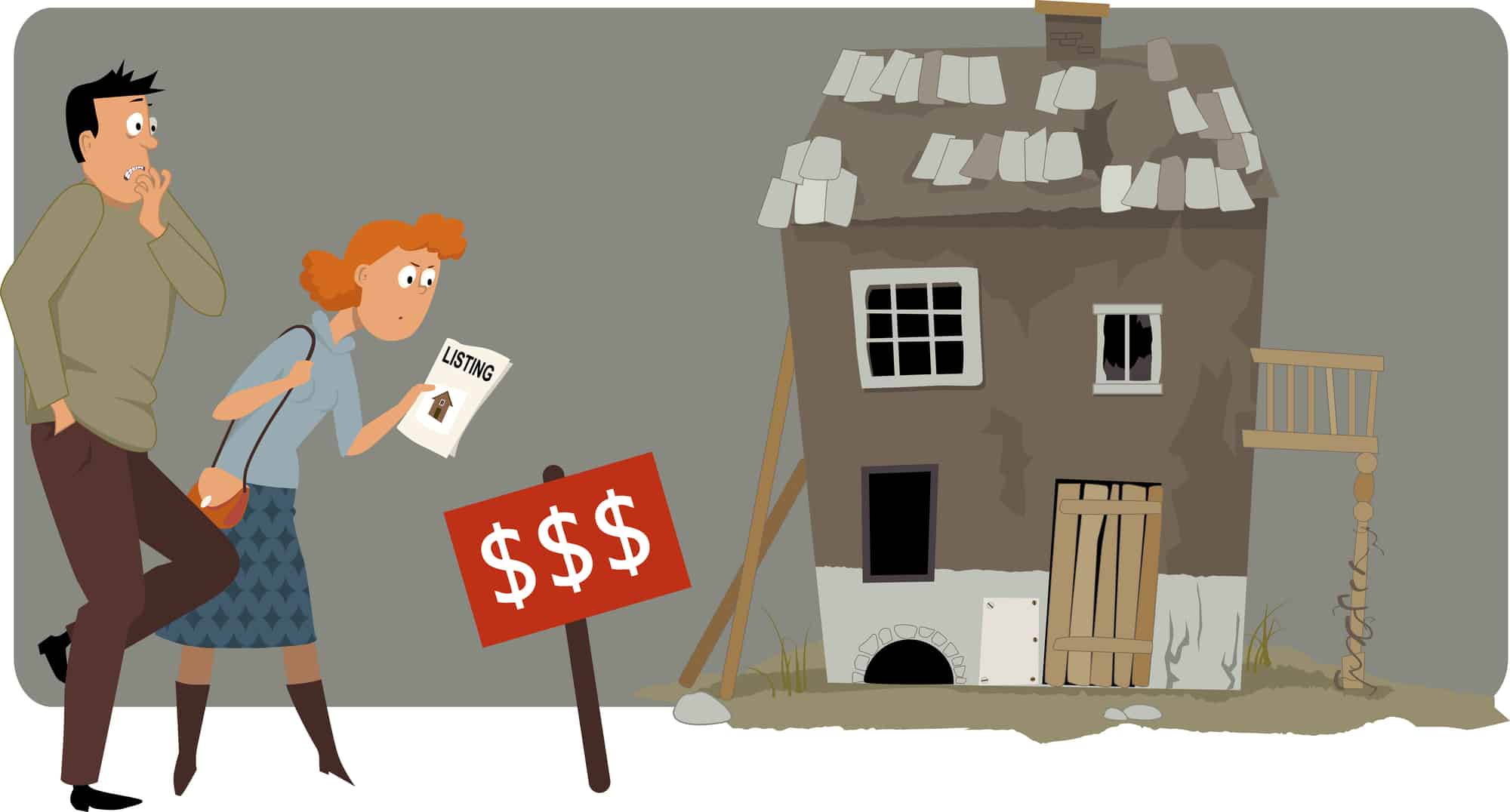Wealthtender is a trusted, independent financial directory and educational resource governed by our strict Editorial Policy, Integrity Standards, and Terms of Use. While we receive compensation from featured professionals (a natural conflict of interest), we always operate with integrity and transparency to earn your trust. Wealthtender is not a client of these providers. ➡️ Find a Local Advisor | 🎯 Find a Specialist Advisor

How to Manage Your Risks and When to Avoid Them Altogether
In an excellent primer on the drawbacks of real estate investing, Ben Le Fort makes the case that “real estate is the most overrated asset in history.”
Why You Should Consider Real Estate Investing
However, there are good reasons why people swear by real estate investing.
One major reason is that it’s much easier and less expensive to leverage a real estate investment. That’s called a mortgage. If you put down a 20% payment and finance the other 80%, you’ve just leveraged your money 5-fold.
Historically, residential real estate has returned about 4% a year.
Leveraged 5-fold, that becomes a 20% annual return, which is double the historic ~10% annual return on stocks. After accounting for inflation, the leveraged return on real estate is ~17%, which is 2.5x the ~7% real annual return for stocks.
Next, direct real estate investing in more tax-efficient than investing in a mutual fund. The latter is required by law to annually distribute gains to shareholders, with significant tax consequences if held in a taxable account. With a direct investment in real estate, you don’t get taxed on any appreciation in your property’s value until and unless you sell it, likely after years or decades.
In addition, mortgage interest on your rental property should be fully tax deductible as a business expense.
Finally, the US tax code lets you depreciate the value of real estate, typically over 39 years. This is a deductible expense that reduces your taxes without requiring any ongoing cash outlay. Note however that this depreciation increases your ultimate taxable capital gains once you sell.
Where I Agree with Le Fort
To be clear, I agree with many of Le Fort’s points, including:
- Risk of Low Diversification: Direct investing in real estate requires a lot of capital, making it hard to diversify (if you’re not already very wealthy);
- Labor-Intensive: Unless you pay someone else to manage the property, it’s a very hands-on investment, requiring a lot of time and effort;
- Ongoing Costs: It’s expensive to buy, and expensive to maintain the investment (mortgage interest, property taxes, insurance, maintenance, marketing for tenants, etc.);
- Regulation Risk: Rentals are highly regulated, so you may be stuck with a bad renter who refuses to pay rent and is hard to evict;
- Leverage Risk: Mortgages are a way to leverage your investment, but they increase your risk if you’re forced to sell when the property value drops near to or even below what you owe on it.
My Responses to Le Fort’s Concerns
Diversification:
While real estate does make it hard to diversify, there are two fairly easy ways of doing so, and doing both reduces your risk more than choosing just one or the other.
- Diversify into other asset classes, so while your real estate investment may be concentrated into a single property in a single market, your other investments, e.g. in stocks, bonds, and cash equivalents reduce the risk of losing everything.
- Instead of direct investment in real estate, you can invest in a Real Estate Investment Trust (REIT) that invests in the sort of real estate you think will perform well over time (e.g., residential, warehouses, office space, etc.). Since REITs invest in many properties and markets, even your real estate exposure will be diversified.
Level of Effort
Here too, there are several things you can do to reduce your real-estate-related effort.
- Invest in one or more REITs – the level of effort here is the same as investing in any other financial asset, not much once you’ve identified which REITs to invest in.
- Instead of looking for a new property to buy, consider holding off until you decide to move to a new home, and then convert your existing home to a rental property. This saves you the effort involved in finding a good investment property, finding a buyer’s broker and a mortgage lender, property inspection, closing the deal, setting up a new insurance policy, and rehabbing and/or remodeling before you can rent it out. You also avoid the risk of finding some hidden problems after you close on an investment property, because you’ve already lived there for years and know the property intimately.
- Hire a solid property management company – for residential real estate, this will probably cost you about 8% of rents, but some companies charge as little as 6% if the rent is higher. A property manager helps you avoid middle-of-the-night calls about clogged toilets, driving out to the property to figure out what’s wrong, and finding the right person to fix the problem if you can’t or prefer not to do it yourself. A management company will also take care of marketing your rental, vetting prospective tenants, and evicting the occasional bad renter (which their vetting process should reduce that risk to about the single-percent level.
Ongoing Costs
The costs involved in owning a rental property directly are certainly much higher and more varied than the costs of owning shares in an index mutual fund. However, owning shares in a REIT avoid those costs.
For direct ownership, you just have to make sure the property is in an area where you can reasonably charge a high enough rent such that your tenants pay all those plus the principal portion of your mortgage payments (which isn’t a cost, but affects your cashflow), and leave enough over that you’re cashflow-positive even when accounting for months when your property is between tenants.
Another tip here is that you can buy a home warranty to help reduce your risk of massive repair costs. In fact, you might be able to put into your lease agreement that the tenant covers half the copay of any repair claim s/he makes. This will make frivolous repair claims less likely.
Here too, there are advantages to renting out a home you just moved out of, rather than buying an investment property. Typically, lenders charge a lower interest rate on mortgages for primary residences, and those rates don’t change if you move out and turn the property into a rental.
Regulation Risk
This is one risk that’s hard to sidestep (except through investing in REITs).
However, your property manager can give you an estimate of the fraction of renters they’ve experienced problems with over their entire portfolio of properties under management. If that’s about 1%, you can charge a higher rent to offset that level of risk.
Leverage Risk
There is no doubt that your risk of losing your investment is much higher when you’re leveraged.
In our example of a 5x leverage, if you’re forced to sell when your asset value drops by just 10%, you just lost half your investment. If you’re forced to sell when it’s down 20%, your entire investment is wiped out. If the asset declines by more than 20% and you’re forced to liquidate, you’d end up owing more than you get for selling the asset.
However, buying stocks on margin (that’s when you borrow money to leverage your stock investment) is far riskier. This is because if and when your investments drop in value, your broker may make that dreaded “margin call” and require you to add money to your investment, and if you can’t or won’t, you’ll be forced to liquidate when prices are low, guaranteeing an outsize loss.
In direct investing in real estate, by comparison, as long as you keep making your mortgage payments, the lender won’t bother you even if the property drops to half its original value. This allows you to wait out the temporary drop in asset value, while being paid by your renters.
Another Idea on Direct Real Estate Investing
Above, I mention that your mortgage interest will be lower if rather than buy an investment property, you lease out your own home once you move to a new one.
However, you can get a similarly lower interest rate if you buy a duplex or quad, live in one unit, and rent out the other(s).
Another advantage here is that it makes it easier to keep an eye on your renter(s) because you literally live next door. This makes it much easier to manage the rental yourself, if you prefer to put in more effort rather than pay a property manager.
When You Should Avoid Direct Investing in Real Estate
All the above may make it seem like a no-brainer that everyone should invest directly in real estate.
That’s hardly the case. Here’s a non-exhaustive list of situations where you should avoid it completely.
- Your credit score is too low to get a good mortgage rate
- You don’t have enough money to properly diversify your investments while putting a large enough down payment (whether on a rental property, on a duplex/quad, or on buying your next home without selling your current home)
- Your local rental market won’t support rents high enough to keep your cashflow positive
- You don’t want the headaches of managing a rental property and can’t afford to hire a management company
- You don’t know how to report your real estate income, expenses, and depreciation on your tax returns, don’t want to put in the time and effort to learn how, and don’t want to pay an accountant to help.
The Bottom Line
There are solid reasons why investing in real estate is a good idea, but as in all investments, it’s crucial to know what you’re investing in, and accept and mitigate the risks through proper diversification.
The above details the advantages of real estate investing, how to look at the risks and mitigate them, and when you should avoid this sort of investing altogether.
If you’re thinking about getting started with real estate investing, you may want to consider hiring a real estate investment advisor who understands the unique needs that come with owning and managing properties.
Disclaimer: This article is intended for informational purposes only, and should not be considered financial advice. You should consult a financial professional before making any major financial decisions.

About the Author
Opher Ganel, Ph.D.
My career has had many unpredictable twists and turns. A MSc in theoretical physics, PhD in experimental high-energy physics, postdoc in particle detector R&D, research position in experimental cosmic-ray physics (including a couple of visits to Antarctica), a brief stint at a small engineering services company supporting NASA, followed by starting my own small consulting practice supporting NASA projects and programs. Along the way, I started other micro businesses and helped my wife start and grow her own Marriage and Family Therapy practice. Now, I use all these experiences to also offer financial strategy services to help independent professionals achieve their personal and business finance goals. Connect with me on my own site: OpherGanel.com and/or follow my Medium publication: medium.com/financial-strategy/.
Learn More About Opher
Wealthtender is a trusted, independent financial directory and educational resource governed by our strict Editorial Policy, Integrity Standards, and Terms of Use. While we receive compensation from featured professionals (a natural conflict of interest), we always operate with integrity and transparency to earn your trust. Wealthtender is not a client of these providers. ➡️ Find a Local Advisor | 🎯 Find a Specialist Advisor




